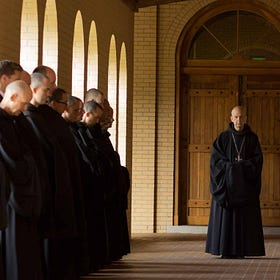Fr. Joseph Bolin on Discernment
See my related essays on vocational discernment here:
Do You "Have A Vocation?" Or Do You Just Think That Because Your Friends Do?
Recently, I wrote a post about the “vocation crisis” and how children need to be exposed frequently to the priesthood and religious vocations in order for some of them to be able to desire them one day. Obvious to some degree, yes, but the results when this happens as I pointed out through two young men I met last summer, Ben and Tryson, were incredibly…
Fr. Bolin’s Book, Paths of Love: https://www.amazon.com/Paths-Love-Discernment-Vocation-According-ebook/dp/B01J9NBLI8?ref_=ast_author_dp
How do we make a decision properly?
Recognizing what the end of all discernment ought to be: both a universal call to holiness and some participation in the mystery of Christ and the Church)
Then particularizing it by considering our own situation in light of these universal principles.
These things are true of every vocation
Every vocation is a human personal participation in the spread and instrumental transference of grace to others and to the world
In some way, then every true vocation is a participation in the mystery of Christ and His Church (Ephesians 5:32)
Every vocation, of course, does this on a far lower level than the union implicit between Christ and the Church, but it is some sort of participation
Ok, but how do we know?
Discernment is the process of recognizing the gratuitous nature of God’s eternal love in our lives and determining how gratuitously to respond in kind by grace (God himself working in and through us). Fr. Bolin gives us three principles that we should follow in this order:
Three Principles for Discernment
Reason: based on circumstances and conditions (highest because this will lead to the love filled assent of the rational will and thereby contains also in itself love and providence
Love: Once we have a heart of purified love and intentions, we can use love in a secondary sense to aid our discernment. We ask ourselves what “path of love” do we truly love?
Providence: follows only after and upon the others. Don’t presume that your interpretation of the small incidental details in your life necessitates what God wills. It can help confirm a discernment of his will realized by the prior two principles, but it cannot be used alone and






